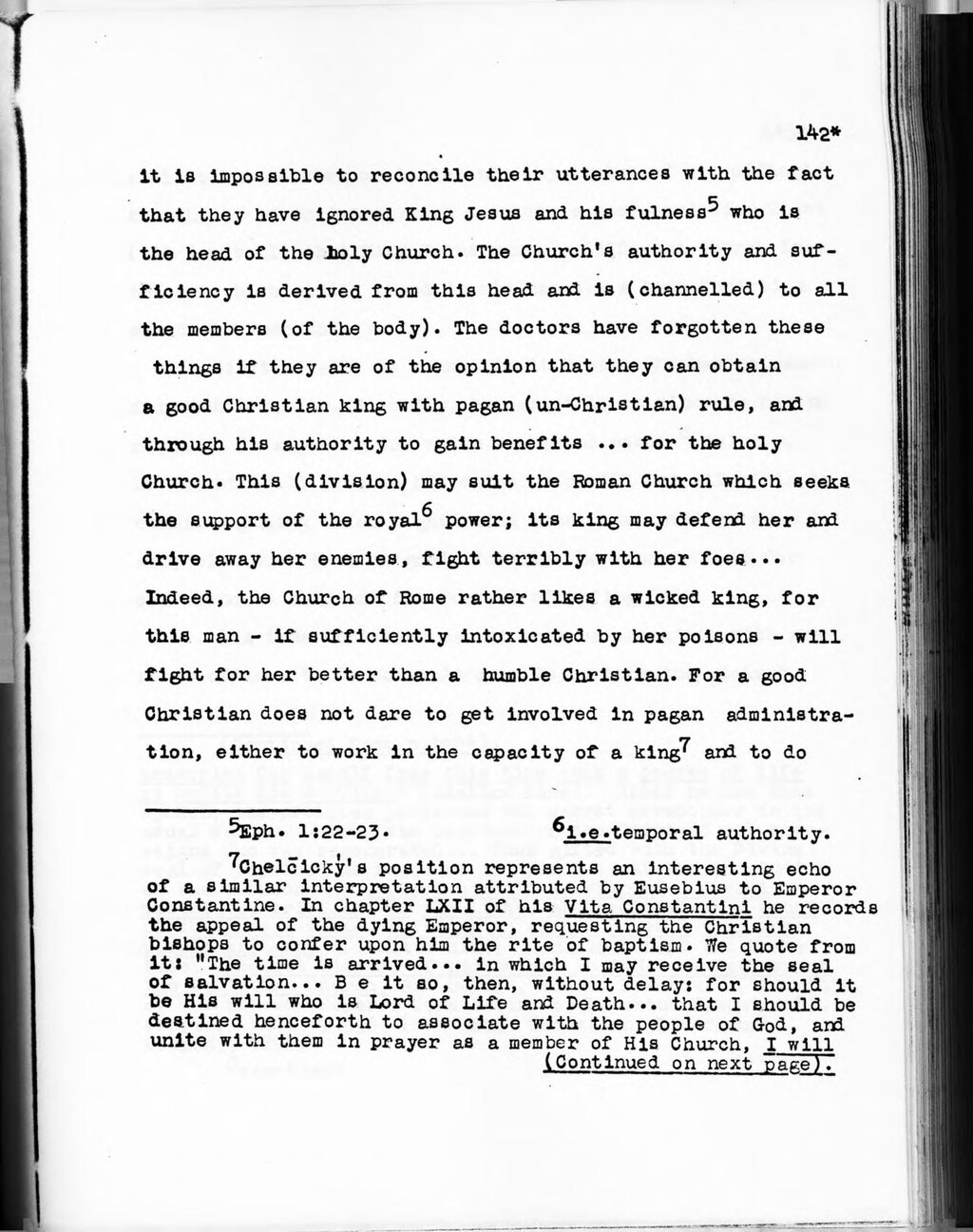it is impossible to reconcile their utterances with the fact that they have ignored King Jesus and his fulness5 who is the head of the holy Church. The Church's authority and sufficiency is derived from this head and is (channelled) to all the members of the body). The doctors have forgotten these things if they are of the opinion that they can obtain a good Christian king with pagan (un-Christian) rule, and through his authority to gain benefits. . . for the holy Church. This (division) may suit the Roman Church which seeks the support of the royal6 power; its king may defend her and drive away her enemies, fight terribly with her foes. . . Indeed, the Church of Rome rather likes a wicked king, for this man if sufficiently intoxicated by her poisons – will fight for her better than a humble Christian. For a good Christian does not dare to get involved in pagan administration, either to work in the capacity of a king7 and to do
6 i.e.temporal authority.
7 Chelc̄icky̍'s position represents an interesting echo of a similar interpretation attributed by Eusebius to Emperor Constantine. In chapter LXII of his Vita Constantini he records the appeal of the dying Emperor, requesting the Christian bishops to confer upon him the rite of baptism. We quote from it: "The time is arrived. . . in which I may receive the seal of salvation. . . B e it so, then, without delay: for should it be His will who is Lord of Life and Death. . . that I should be destined henceforth to associate with the people of God, and unite with them in prayer as a member of His Church, I will
